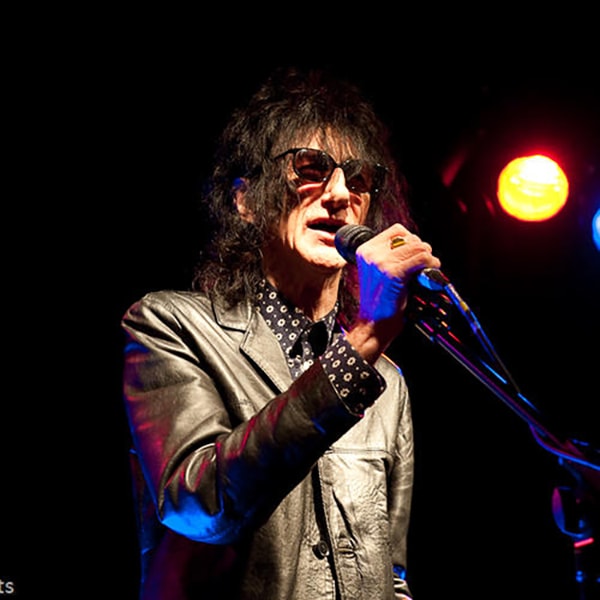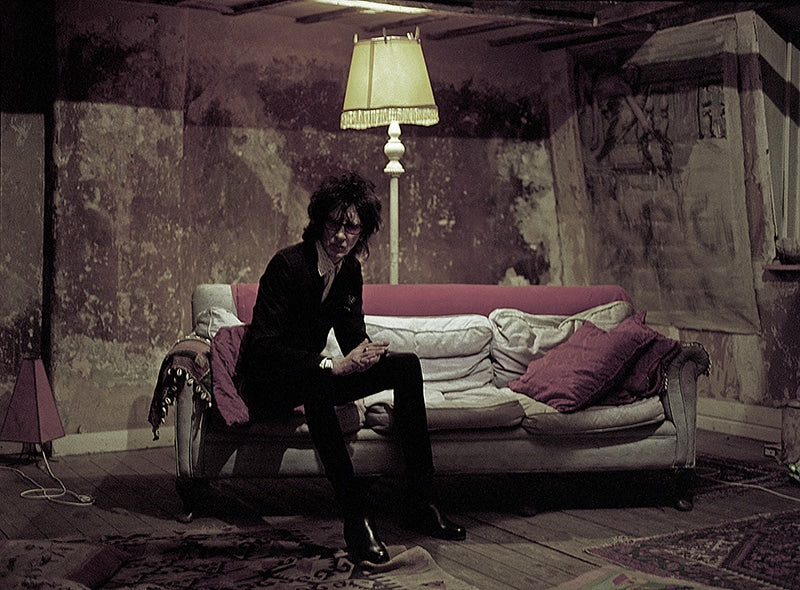Poets are not exactly part of mainstream culture these days. I’m only familiar with a few headliners from the last 3,000 years: Homer, Geoffrey Chaucer, Shakespeare, Edgar Allen Poe, and Allen Ginsberg. It’s nothing to be proud of, but most poets don’t speak to me in the way my favorite musicians do. I remember in Miss Hill’s 11th grade English class having to memorize and recite a poem – with express instructions that we could not use song lyrics. I went through our textbook and tried to find an excerpt from something that grabbed me and would impress Miss Hill. The Faerie Queene, written in 1590 by Edmund Spencer was similar to some of the other works we studied:
Lo I the man, whose Muse whilome did maske,
As time her taught in lowly Shepheards weeds,
Am now enforst a far unfitter taske,
For trumpets sterne to chaunge mine Oaten reeds,
And sing of Knights and Ladies gentle deeds;
Whose prayses having slept in silence long,
Me, all too meane, the sacred Muse areeds
To blazon broad emongst her learned throng:
Fierce warres and faithful loves shall moralize my song…
With my stage fright, I could barely memorize this one stanza let alone two from this epic work of more than 36,000 lines. Maybe I could recite something similar I had already committed to memory. So on my performance day I went right into “My Fairy King” by Roger Meadows Taylor. It was close enough to Edmund Spencer:
In the land where horses born with eagle wings
And honey bees have lost their stings
There’s singing forever, ooh yeah
Lion’s den with fallow deer
And rivers made from wine so clear
Flow on and on forever…
The “poem” was a deep cut from Queen’s 1973 debut album Queen and it was written by Freddie Mercury. In a class full of Duran Duran and Run DMC fans, no one knew any better, not even Miss Hill. She was unimpressed by “My Fairy King,” but I was happy to maintain my solid C-average in her class. I have not given much thought to poetry since high school until Don Letts’ documentary Punk: Attitude (2005). Forty-two minutes into the film, a man in dark glasses resembling Bob Dylan from the 1960s, sang verses as he walked down a dilapidated urban landscape. It was the Bard of Salford, John Cooper Clarke, describing an overnight jail stay in “36 Hours”:
…Steel shoes on the stone cold floor
I hear the screws screaming in the corridor
The bad news and the slammin’ of the door
The “what did i do’s” and the “what am I here for’s”
Shades of doubt fall deeper than the slag mine
Lights out… sack time…
Clarke’s words, appearance, and level of cool was much more appealing than Beat poets from a bygone age of smoky cafes full of Ivy league students drinking espresso. He was clearly a man of the people and a true rock and roller.
John Cooper Clarke was born on January 25, 1949 in Salford, just outside of Manchester, which is within 50 miles of Liverpool, Leeds, and Sheffield. Inspired by an English teacher, Clarke decided poetry was his calling. As every sensible person knows, choosing to write words over an honest day’s work is either brave, desperate, or just plain stupid, but brilliance sometimes perseveres despite imperfect circumstances.
Clarke’s language is raw and unadorned except for the twang of a northern accent, more like that of Liam Gallagher than a teacher of poetry in Oxford. He performed against a backdrop of Margaret Thatcher’s administration and opened for the Sex Pistols, Clash, Buzzcocks, and other acts whose fans spit all over his suits. In the early days, Clarke’s rough subject matter was softened by The Invisible Girls, his back-up band, who provided ambient soundtracks to stanzas like those in “Beasly Street”:
… From the boarding houses and the bedsits
Full of accidents and fleas
Somebody gets it
Where the missing persons freeze
Wearing dead men’s overcoats
You can’t see their feet
A riff joint shuts – opens up
Right down on Beasly Street…
The late 1970s and early 1980s were a fertile period for Clarke, but there were many years following that proved to be challenging, as he dealt with heroin addiction and financial struggles. He even shared an apartment with Nico of Velvet Underground fame, also a heroin user at the time. But seeds planted in the Punk era continued to blossom later in Clarke’s life as he enjoyed a resurgence in the 21st century. He was rediscovered by young musicians like the Arctic Monkeys, became a frequent guest on chat shows, and spread his Mancunian wisdom to far-flung places. His poem “Evidently Chickentown” was featured in a 2007 episode of The Sopranos. In 2013, Clarke was awarded an honorary doctorate from the University of Salford for 50 years of influencing culture and creating poetry for non-traditional audiences like the working class, punks and underachieving students like me. Ironically, his work is now part of the national curriculum in British schools. He’s also been busy writing, and recently completed a new collection of poems for his book, The Luckiest Guy Alive (2018), and a memoir, I Wanna Be Yours (2020).
Dr. John Cooper Clarke hit the road with Squeeze for a long-awaited 2018 tour of Australia, and the man I first learned about in Letts’ documentary was also making annual visits to New York. In 2019, I attended my first official poetry reading at Joe’s Pub in the Public Theatre in Manhattan. With his 116-pound rail-thin frame, angular face, and oversized hairdo (think Robert Smith of the Cure), Clarke was equal parts rock star, raconteur, and comedian. He performed without a band as poems old and new flowed like music to their own natural beat. Although most people came to see Clarke, Joe’s Pub was also graced by Mike Garry, Clarke’s frequent tour partner and former librarian from Manchester, who brought the audience to tears with a poem about his primary school teacher, Miss McCoombe, “Signify”:
…And in that Classroom her voice was music
Echoing prayer and hymns and songs
She was a living angel
But you’d know if you did wrong
She took us on school trips
To castles with moats across oceans on boats and we would float
And we hadn’t even left the classroom…

John Cooper Clarke. From the John Cooper Clarke website.
As Garry started reciting to a roomful of adults panic-buying cocktails before the servers vanished, we were suddenly transformed into quiet children riveted by someone reading aloud to us again. Who could believe that live poetry could be so enthralling? It is, after all, simply a combination of the correct words arranged in perfect positions like in my poem, “Ode to Miss H”:
Miss Hill was then my least favorite teacher and not one to anger
She had a steely countenance; rarely did I see her smile
and her piercing gaze was as good as a slap in the face
But she read The Canterbury Tales and Sir Gawain and the Green Knight aloud in Middle English
and brought them to life in Morningside Heights
She knew everything about grammar and history
and I believed she was fluent in Latin, French, ancient Greek, and perhaps Old English as well
I wish I weren’t so wary and fearful
I can’t imagine what went unlearned
But, only she, for-ever made me love words – some of the best ones
The old words from Beowulf, Macbeth, and The Wife of Bath’s Tale…
I could not think of a final blockbuster line except maybe, “So, it wasn’t all hell,” or “It still turned out pretty swell.” Even with heartfelt memories and emotions, there was no avoiding poor rhyme scheme, lack of imagery, and terrible verbosity. Furthermore, I am completely derivative of Garry’s beautifully-delivered poem to Miss McCoombe. The time it took to me just to write something hokey is staggering. From now on, I will leave it to professionals.
At 73, Clarke is currently making appearances throughout the UK and Ireland, and he will be doing shows in Toronto, Boston, and New York City later in the fall. If you want to see a singular legend of spoken word, do it this year. Clarke was recently diagnosed with Alzheimer’s, so we have no idea how many tours he will able to do. Even with this sad news, Clarke sees the bright side. “There are three benefits of Alzheimer’s, one, you get to meet new people every day; two, you can hide your own Easter eggs, and three, you get to meet new people every day.” Spoken like a true poet.
If you still haven’t fallen in love with poetry, I will give you one more chance with my favorite John Cooper Clarke piece, “Reader’s Wives”:
Make a date with the brassy brides of Britain
The altogether ruder readers’ wives
Who put down their needles and their knitting
At the doorway to our dismal daily lives…
Header image from the John Cooper Clarke website.



